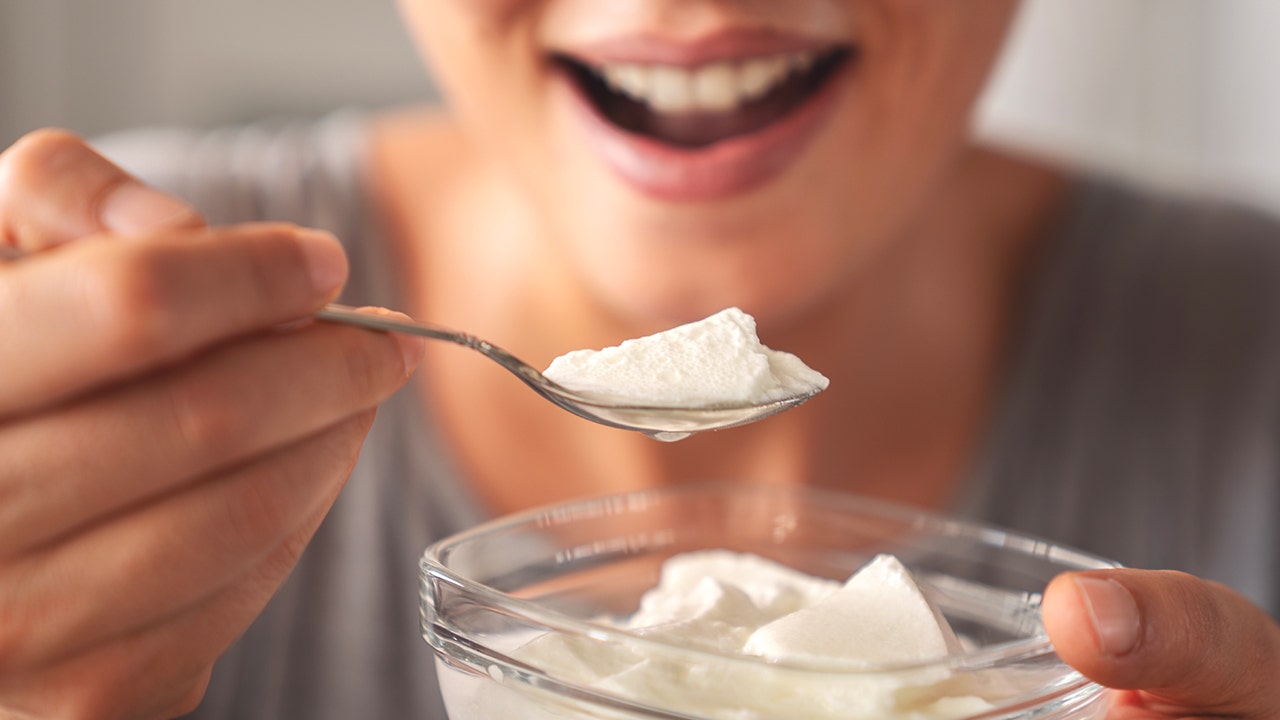Recent research has revealed that Greek yogurt may play a significant role in reducing inflammation following workouts, offering more than just a protein boost. This study, published in the journal Nutrients on August 29, involved Canadian scientists who monitored the resistance training of 30 healthy young adult men. They analyzed how different post-workout snacks, specifically carbohydrates versus Greek yogurt, affected inflammation markers in the participants.
The findings indicate that incorporating Greek yogurt into the diet led to a more substantial decrease in certain inflammatory markers compared to carbohydrates alone. This suggests that Greek yogurt not only aids in muscle growth but also helps manage inflammation, which can result from the small muscle tears that occur during strength training. Symptoms such as soreness, stiffness, and swelling characterize this natural reaction.
Autumn Bates, a certified clinical nutritionist and author of the upcoming cookbook “How to Eat,” shared her insights with Fox News Digital. She emphasized the importance of protein for post-workout recovery, stating, “Protein is the primary nutrient needed to recover from a workout.”
Bates highlighted the benefits of Greek yogurt, noting its rich content of leucine, an amino acid vital for muscle repair and recovery. She explained, “Carbs can help replace muscle glycogen, but it does not provide the building blocks needed, amino acids, for muscle recovery.”
As a personal trainer who also makes her own Greek yogurt at home, Bates reported saving about $450 annually. She recommended opting for plain, unsweetened, full-fat Greek yogurt to maximize its benefits.
“Full-fat has been found to be more satiating than low-fat versions, which means you’re less likely to snack between meals,” Bates noted. She also pointed out that full-fat dairy is significantly richer in vitamin K2, essential for bone, heart, and dental health, explaining that low-fat options often lose much of this nutrient due to its fat-soluble nature.
Jill Charton, a celebrity fitness trainer from Georgia, added another perspective by mentioning Greek yogurt’s probiotic benefits, which contribute positively to gut health. However, she also stressed the importance of a balanced diet rich in other anti-inflammatory foods. “Eating fatty fish, raw nuts and seeds, berries, leafy greens, and healthy fats like olive oil, while minimizing processed foods, trans fats, refined sugars, as well as avoiding alcohol and smoking, can significantly help in reducing inflammation in our bodies,” Charton said.
In addition to diet, Charton emphasized that lifestyle factors like regular exercise and adequate sleep play a critical role in combating inflammation. Staying hydrated and managing stress are equally vital, according to her. “Taking high-quality supplements like omega-3 fatty acids, curcumin, and specific vitamins such as vitamin D may help reduce inflammation,” she explained. However, she advised consulting with a healthcare provider and getting blood work done to assess inflammatory levels and overall health before introducing any new supplements.
For those who find Greek yogurt’s distinctive tangy flavor off-putting, Bates offered a simple solution: mix in protein powder to enhance the taste or blend it into a smoothie.
“As long as you’re consuming enough protein, including protein from Greek yogurt, within 24 hours after your workout, then you’ll still see amazing benefits,” she concluded, reiterating the importance of integrating this nutritious food into post-exercise routines.
With its range of health benefits, Greek yogurt proves to be an excellent ally in the journey toward efficient recovery and overall health. Incorporating this superfood into one’s diet can provide not just protein, but also crucial support in managing inflammation, making it a smart choice for fitness enthusiasts and casual exercisers alike.






